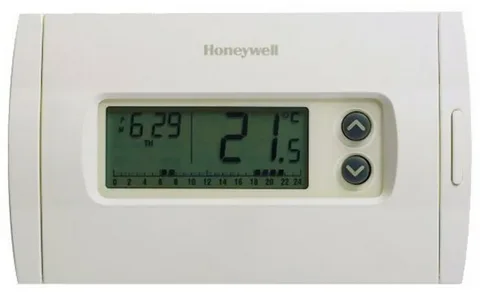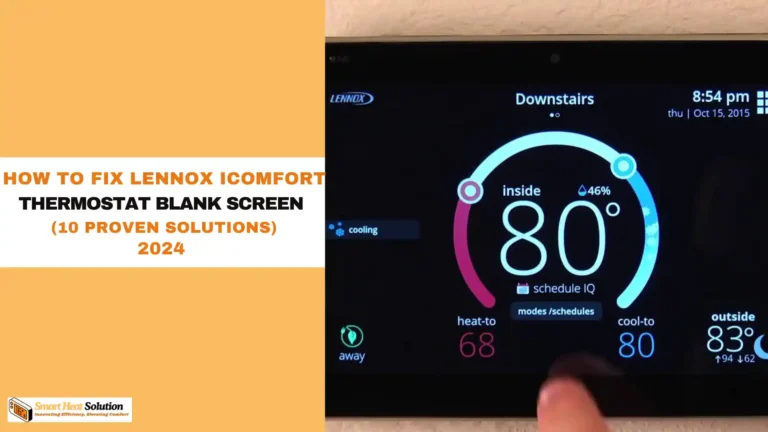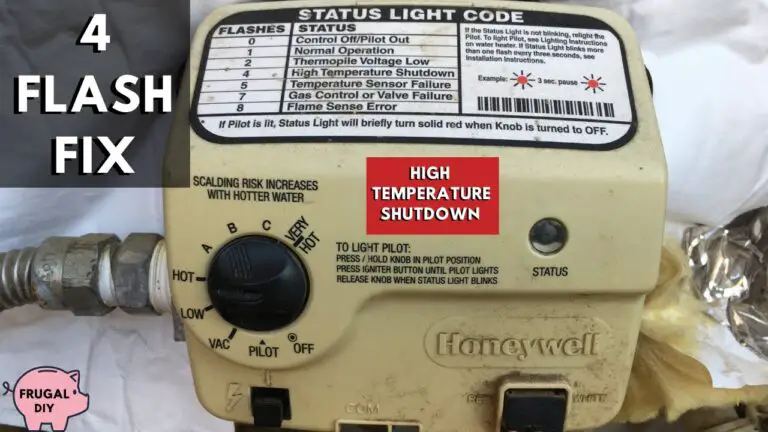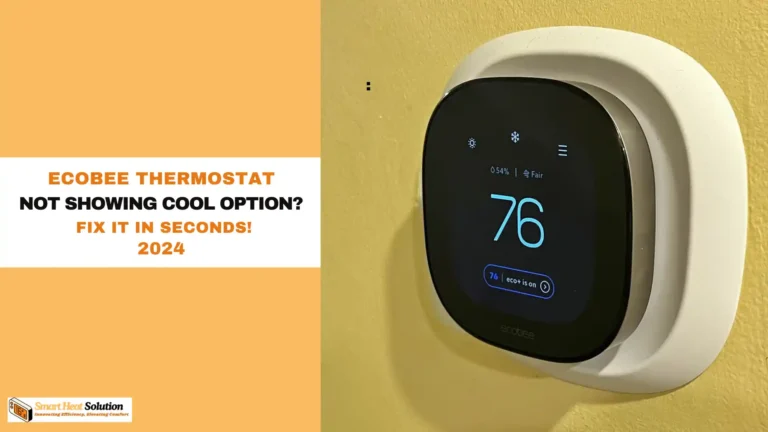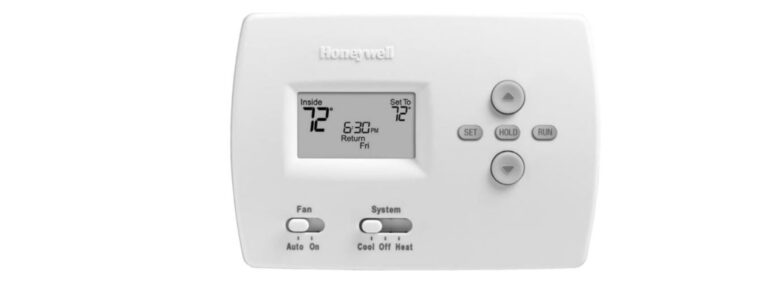Is It Safe to run an AC Without the Condenser Fan? (2024)
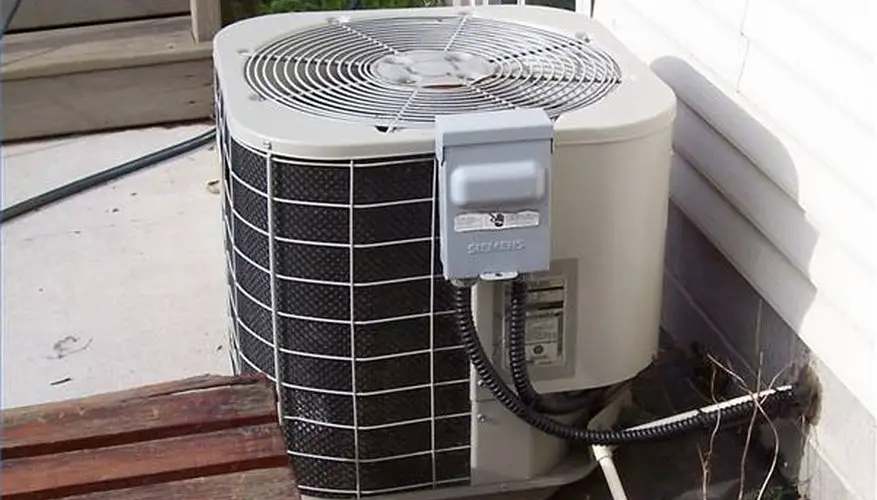
As a resident of California, you may find that there are many situations where you don’t need to run your air conditioner to keep your home comfortable. But, is it safe to run an AC without the condenser fan?
However, some homeowners wonder if they should (or could) still operate their blower fan when the AC is off. Many even consider the idea of keeping the air conditioning fan running continuously.
This guide will help you understand whether this is a wise choice. If you’re unsure about running your air conditioner fan when the AC isn’t in use, keep these points in mind.
What Is the Condenser Fan?
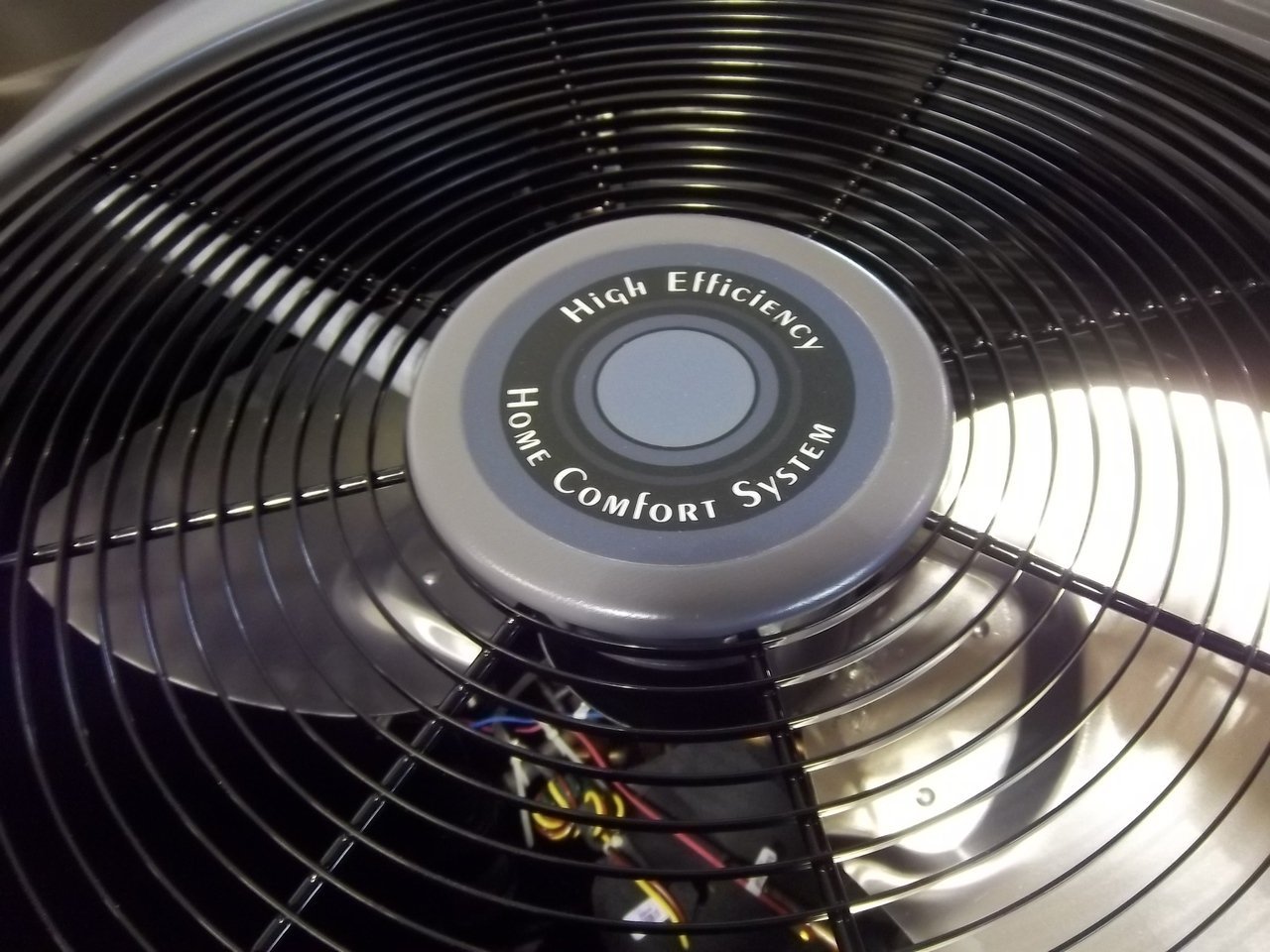
First off, let’s understand what the condenser fan is. The condenser fan in HVAC systems is responsible for dissipating heat from the refrigerant in the outdoor condenser unit.
It blows air over the condenser coils, facilitating the cooling process.
By ensuring proper airflow, the fan enhances system efficiency and supports the refrigeration cycle. Regular maintenance is crucial for optimal performance.
Why Is the Condenser Fan So Important?
A properly functioning condenser fan is critical to the efficiency of your air conditioning system. Here’s why this component is so vital:
Heat Dissipation
The condenser fan helps release the heat absorbed by the refrigerant inside your home. Without this function, the heat remains trapped, forcing the system to work harder and increasing the risk of overheating.
Energy Efficiency
An operational fan ensures that your AC system runs efficiently. A broken fan results in higher energy bills due to the system working overtime to cool your space.
Preventing Compressor Damage
When the fan isn’t working, the compressor can overheat, leading to system failure. Replacing a compressor is costly, making preventive fan maintenance critical.
Is It Safe to run an AC Without the Condenser Fan?
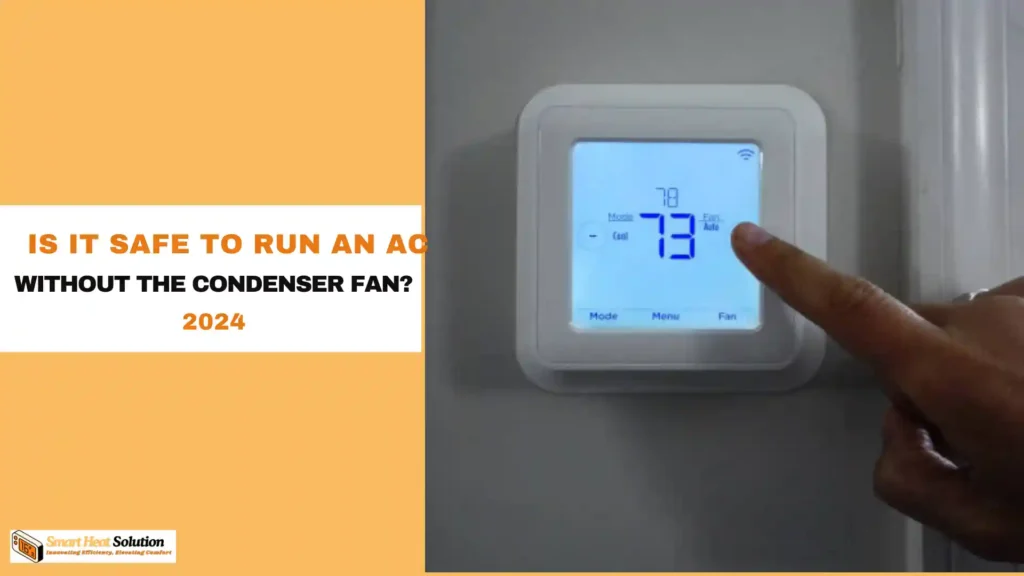
So, Is It Safe to run an AC Without the Condenser Fan? The short answer is yes, but it’s not a good idea. When the condenser fan is down, the heat can’t escape effectively. Imagine cooking pasta and forgetting to drain the hot water; things can get messy, and so can your AC.
Should You Run the Blower Fan on “Auto” or “On”?
Most thermostats offer two settings for the AC fan: “Auto” and “On.” Understanding the difference between these modes is key to optimizing your HVAC system’s efficiency.
Auto Mode
In “Auto” mode, the blower fan runs only when the air conditioner or furnace is active. This setting conserves energy and reduces wear on the fan, as it only runs when absolutely necessary.
On Mode
In “On” mode, the blower fan runs continuously, regardless of whether your AC or furnace is working. This can improve air circulation and filtration but also increases energy consumption and the likelihood of wear and tear.
Which Setting Is Best?
- For energy efficiency: “Auto” is the better option.
- For continuous air circulation and filtration: “On” may be worth considering, especially if air quality is a concern.
How Does the AC Fan Work?
The blower fan is the component that circulates air through your home’s ductwork. When your air conditioner or furnace is running, the blower fan ensures that conditioned air is evenly distributed across all rooms.
However, it can also operate independently from your AC or furnace, circulating air even when these systems are off.
Key Functions of the Blower Fan:
- Air circulation: Ensures that air moves continuously through your home.
- Temperature regulation: Helps maintain consistent temperatures in different rooms.
- Air filtration: Running the fan allows your HVAC filters to trap dust and allergens continuously.
Benefits of Running the AC Fan Without the AC
There are several reasons why you might want to run your AC fan without the air conditioning. Below are the key benefits.
1. Improved Air Quality
Running the blower fan alone can enhance indoor air quality. As it continuously moves air through the HVAC system, it passes through air filters that trap dust, allergens, and other airborne particles. This is particularly beneficial for homes with pets or residents who suffer from allergies.
2. Even Temperature Distribution
Even when your air conditioner is off, the blower fan can help distribute air more evenly across your home. This helps eliminate hot or cold spots, making your living environment more comfortable without running the AC unit.
3. Lower Energy Costs
Running your blower fan consumes less energy than running your air conditioner. By circulating air without cooling, you can maintain a comfortable temperature at a fraction of the cost. This strategy is especially useful during milder months when full AC isn’t necessary, but you still want airflow.
Downsides to Running the AC Fan Continuously
While there are clear benefits to running the blower fan without the AC, there are also some drawbacks you should consider.
1. Increased Wear and Tear
Running the blower fan continuously can lead to more frequent maintenance. Since the fan is working longer hours, its components may wear out faster, leading to repairs or replacement down the line.
2. Higher Humidity Levels
Without the cooling effect of the air conditioner, running the blower fan in humid climates may actually circulate moist air throughout your home. This can lead to an increase in indoor humidity, which may cause discomfort or even mold growth if left unchecked.
What Happens If the Condenser Fan Isn’t Running?
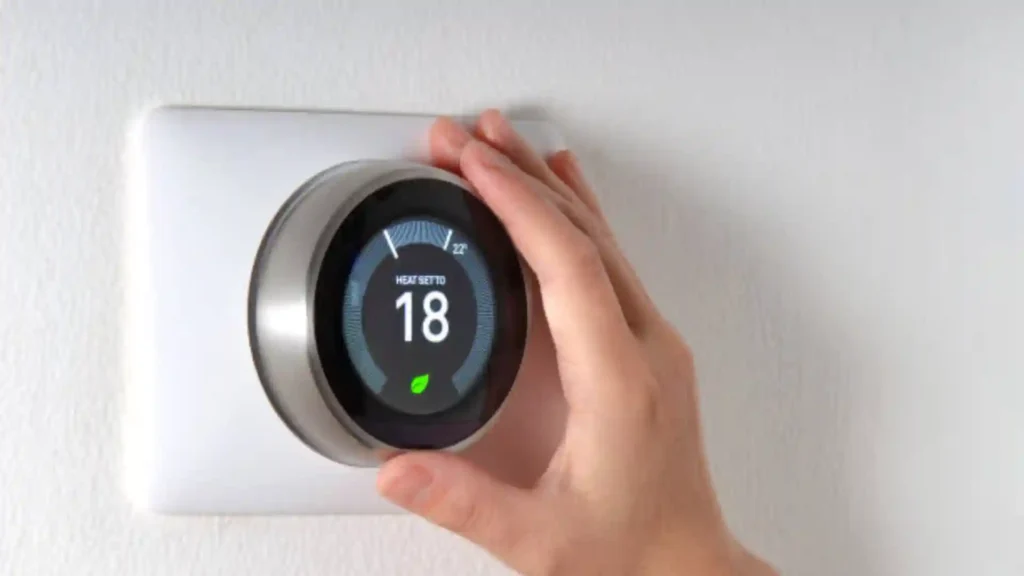
If the condenser fan takes a break, it signals trouble. Here are some things you might notice:
- Inefficient Cooling: Your AC might blow warm air, leaving you feeling like you’re inside a sauna instead of a cool retreat.
- Increased Energy Bills: The system struggles more, drawing more power, which can make your electricity bill skyrocket.
- System Shutdown: Overheating can force the AC to shut down, a protective measure to avoid serious damage.
Potential Damage
Running your AC without the condenser fan can lead to a variety of issues. For starters, the compressor can overheat. This little component is the heart of your AC system.
If it gets too hot, it could fail, leading to costly repairs or even a complete system replacement—talk about a budget buster!
Reduced Efficiency
Without the fan, your AC’s efficiency takes a major hit. You might notice your system running longer than usual, trying its hardest to cool your space but failing to do so effectively.
This means higher energy bills, and nobody likes that. It’s like trying to fill a bucket with a hole in it; you’re wasting time and resources.
Temporary Measures
Should you face an emergency and need immediate relief, minimize usage time and continually monitor the unit. Contact a professional technician as soon as possible to avoid lasting damage.
Common Causes of a Condenser Fan Not Spinning
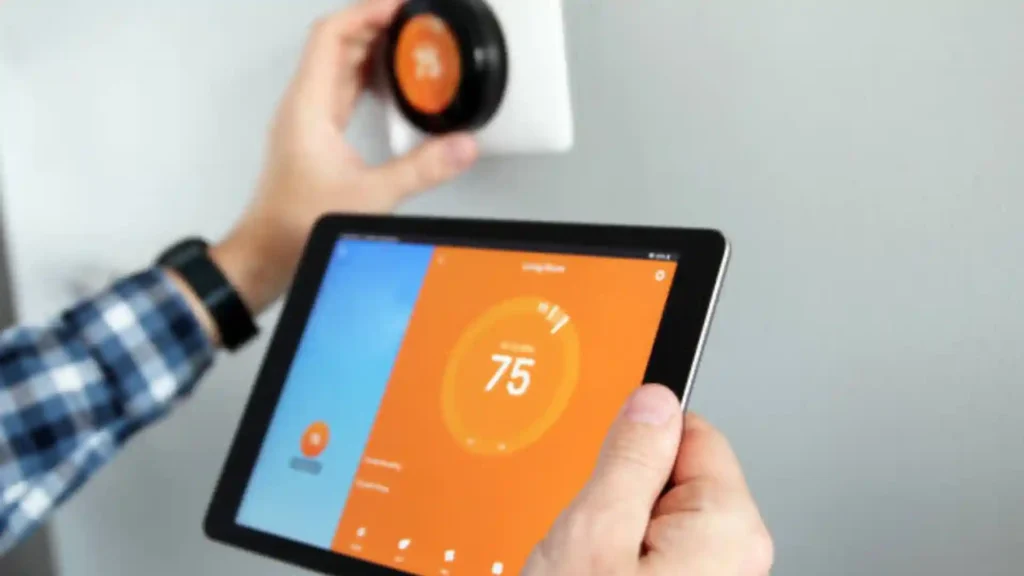
Understanding the root cause of your condenser fan’s failure is crucial to resolving it quickly. Let’s dive into the most common reasons why this essential component might stop working.
1. Electrical Problems
One of the most frequent issues is an electrical malfunction. Blown fuses, tripped circuit breakers, or faulty wiring can disrupt the power supply to the fan, causing it to stop.
2. Worn-Out Motor
Over time, the motor powering your condenser fan can wear out, especially if it’s been overworked. A motor that struggles to keep up can ultimately give out, causing the fan to stop spinning entirely.
3. Debris Obstruction
Dirt, leaves, or other debris can block the fan blades, preventing them from moving freely. Even small obstructions can put stress on the motor, leading to more significant problems.
4. Capacitor Failure
The capacitor jumpstarts your fan’s motor, and when it fails, the fan won’t initiate. This small but essential component often goes unnoticed until the fan no longer spins.
5. No Cool Air
Is your AC blowing warm air instead of cooling your home? If the air feels lukewarm, this is a clear indicator that the condenser fan isn’t doing its job of expelling heat from the system.
6. Unusual Noises
A properly functioning AC unit should operate quietly. If you hear clanking, grinding, or rattling noises, it could signal mechanical failure within the fan or motor.
7. High Energy Bills
A spike in your utility bills is another warning sign. When the condenser fan isn’t working, your AC has to work harder to cool your home, leading to inefficient energy use and skyrocketing costs.
3. What to Do When Your Condenser Fan Stops Working
When you notice any of the above signs, quick action can prevent further damage to your AC system. Here’s how to troubleshoot the problem:
- DIY Inspection: Before calling a technician, check for obvious issues like debris blocking the fan blades or a tripped circuit breaker.
- Seek Professional Help: If your DIY inspection doesn’t uncover the issue, calling an HVAC professional is your best bet to diagnose and repair the problem efficiently.
How to Fix a Malfunctioning Condenser Fan
Addressing a broken condenser fan as soon as possible can prevent system failure and costly repairs. Here’s a step-by-step guide to fixing a faulty fan.
Check the Power Supply
First things first—ensure the unit is receiving power. Verify that fuses aren’t blown and the circuit breaker hasn’t been tripped. Secure any loose connections.
Inspect the Fan Blades
Clear any dirt or debris obstructing the blades. Ensure the fan can spin freely without hitting any obstructions.
Test the Capacitor
A faulty capacitor can prevent the fan from starting. Test it using a multimeter and replace it if necessary.
Call a Professional
If these steps don’t resolve the issue, it’s time to call in an expert to check the motor and electrical components.
Simple Steps to Fix a Faulty Condenser Fan
If you’ve pinpointed the condenser fan as the problem, follow these simple yet effective steps:
- Turn Off the Power: Always prioritize safety. Switch off power at the breaker before touching the unit.
- Clean the Fan Blades: Remove any debris and thoroughly wipe down the fan blades to ensure they’re clean.
- Check the Motor: Inspect the motor for any signs of wear and tear. Lubricate moving parts if necessary.
- Inspect Wiring: Ensure all wires are securely connected and replace any that are damaged.
Preventive Maintenance Tips for a Healthy Condenser Fan
Maintaining your condenser fan can save you from bigger problems down the road. Follow these simple preventive tips to keep your fan in top condition:
- Regular Cleaning: Keep the area around the condenser free from leaves, dirt, and debris to prevent obstruction.
- Scheduled Inspections: Have your AC system professionally inspected at least once a year to identify potential issues early.
- Monitor Performance: Be vigilant about unusual noises or reduced cooling efficiency, both of which can indicate a fan problem.
When to Call a Professional
If basic troubleshooting doesn’t solve the issue, it’s time to call an HVAC technician. Here’s when you should seek professional help:
Complex Electrical Issues
Sometimes, wiring or electrical problems are too complex for a DIY fix. A certified professional can quickly diagnose these issues and provide a lasting solution.
Annual Maintenance
Scheduling routine maintenance checks with a professional can prevent unexpected breakdowns and extend the life of your system.
FAQ
-
Will AC work without a cooling fan?
No, an AC won’t work well without a cooling fan. The fan helps get rid of heat from the refrigerant. Without it, the system can’t cool the air properly, which can lead to overheating, poor cooling, and possible damage to the compressor and other parts. Running an AC without a working fan can also use more energy and lead to expensive repairs.
-
What happens if my condenser fan is not working?
If your condenser fan isn’t working, you might face several problems:
Poor Cooling: The AC won’t cool effectively.
Compressor Overheating: The compressor might overheat and get damaged.
Higher Energy Bills: The AC will use more energy to try to cool.
Damage to Other Parts: Other parts of the AC might get damaged because of the extra strain.
Less Comfort: The indoor temperature may not be comfortable or as desired. -
Can AC work without an outside fan?
No, an AC system needs an outside fan, also called the condenser fan, to work properly. This fan helps get rid of heat from the refrigerant. Without it, the system can overheat, work less efficiently, use more energy, and possibly damage important parts like the compressor.
-
Should the condenser fan always be running?
Yes, the condenser fan should be running whenever the AC is on. It helps get rid of heat from the refrigerant, keeps the cooling effective, and prevents the compressor from overheating.
Final Thoughts
So, can you run AC without the condenser fan running? In short, you shouldn’t. It can lead to overheating, increased energy bills, and potential system failure.
Running an AC without the condenser fan isn’t advisable. Not only does it compromise cooling efficiency, but it also risks damaging your unit.
Safeguard your comfort and investment by promptly addressing fan issues and ensuring regular maintenance.
With these steps, you’ll keep your system humming along smoothly and your home comfortably cool.

I’m Alan William’s, the founder of SmartHeatSolution.com. I am from California, USA, I’m passionate about innovative heating technologies and their impact on our homes and businesses. With a background in electrican and home repair , I aim to make smart, energy-efficient heating accessible to everyone. When I’m not writing, I’m likely interested in all the thermostat brands and their new technnology. Thanks for stopping by!


